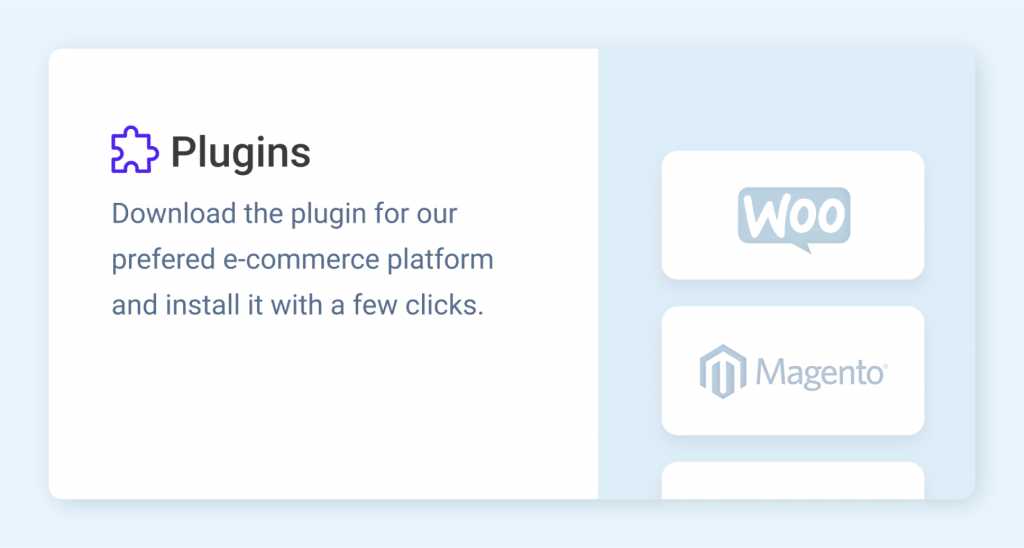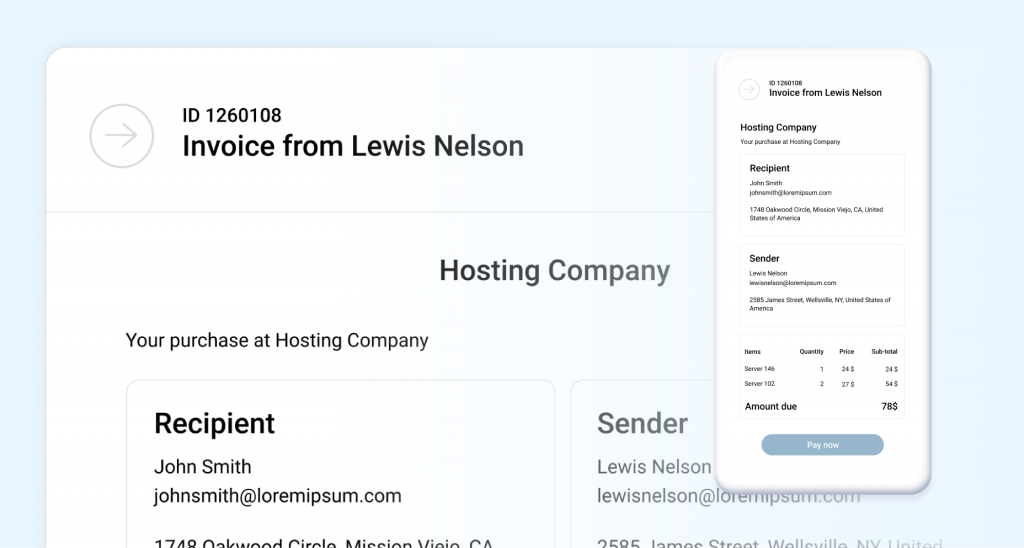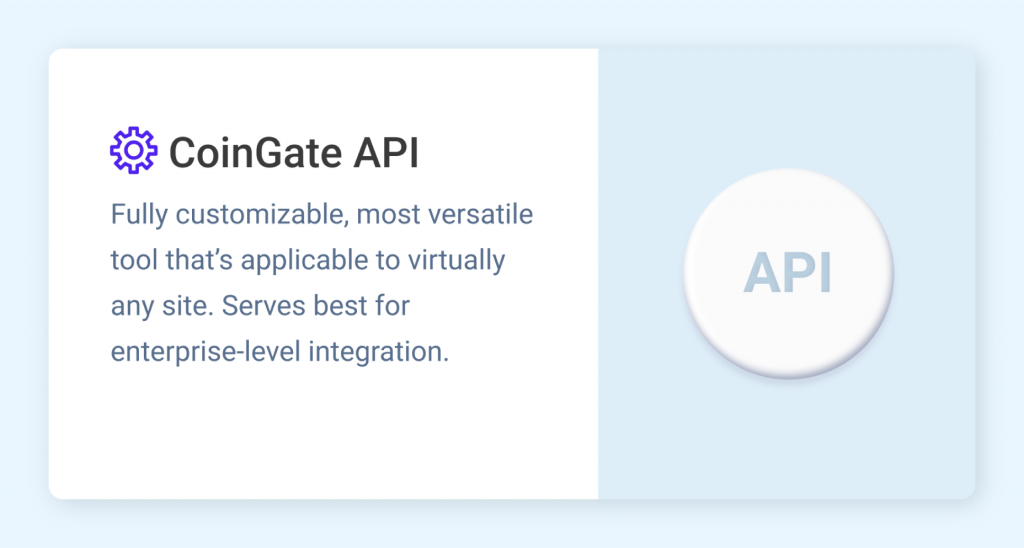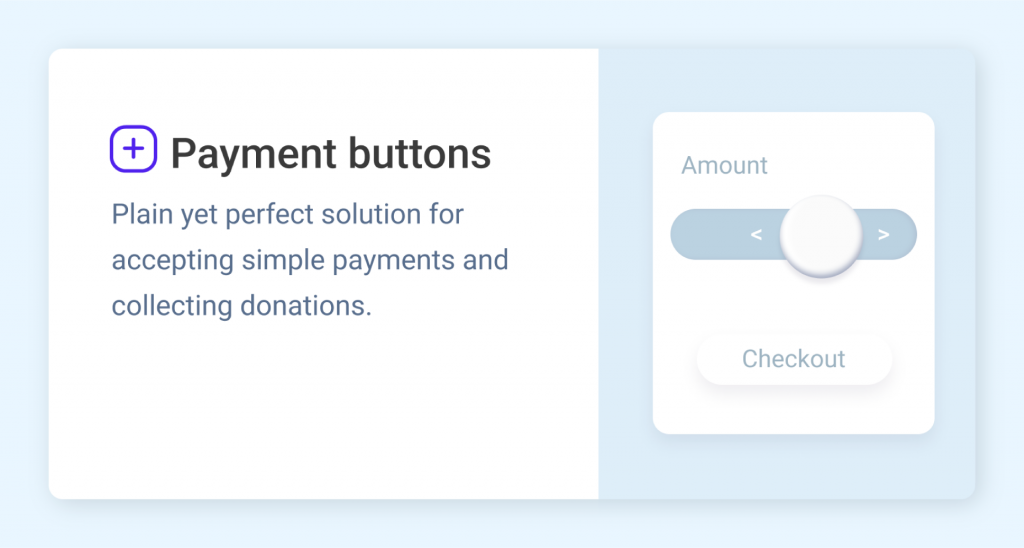Crypto Payments, Educational, Getting Started, Tutorials
How To Get Paid In Bitcoin As a Business?
Last updated: September 11, 2023 15 min read
Vilius Barbaravičius
With each passing day, crypto projects and their markets attract more curious participants. As so, lots of businesses from every type of industry began to reconsider whether it’s wise to, once again, pass up the opportunities that bitcoin, or any other crypto asset, presents.

Today, seemingly every institution that had the patience to thoroughly research the topic of blockchain, and bitcoin, in particular, is now seriously considering the possibility of entering crypto markets in one way or another.
While there are many ways to do that, the most popular and most accessible option for your everyday business venture is to start getting paid in bitcoin for goods and services.
But is it worth the effort, no matter the industry? If so, where should you start, and what should be considered before you decide to introduce cryptocurrency payment methods to your customers?
Should you accept bitcoin payments on your website?
The first thing to consider is whether your business can benefit from accepting bitcoin at all. But, in most cases, it’s a no-brainer. As long as you have a service or a product to sell, the bitcoin payment option simply provides an additional means of payment for people who would rather pay with cryptocurrencies than fiat currencies.
There might not be a lot of such customers at first. Still, a recent study of Crypto.com’s users has shown that the number of people that would like to pay with crypto is multiple times bigger than the number of merchants willing to accept it. To be more precise, only 4% of surveyed merchants accept cryptocurrency payments, while 40% of surveyed consumers already use bitcoin and other digital assets for shopping online.
The disparity between crypto-paying consumers and crypto-friendly merchants signals the opportunity to fill up the demand gap and gain a competitive advantage over businesses that operate in the same industry.
What kind of companies get paid in bitcoin today?
According to the same study, the most significant demand for crypto payments originates in the travel, automotive, digital media, and hospitality industries.
However, many other industries, such as VPN, hosting, gaming, gambling, and similar, have already made a habit of accepting bitcoin or other cryptocurrencies for payments, which is evident judging by what kind of businesses process crypto payments through the CoinGate payment processor.
Businesses from the industries mentioned above accept bitcoin and other cryptos not by mistake. There are numerous benefits of accepting payments in bitcoin or other cryptocurrencies that ultimately become deciding factors, especially if a company operates globally and offers digital goods or services.
What are the benefits of accepting bitcoin?
There are at least eight benefits bitcoin payments bestow upon companies that choose to incorporate it into their daily operations. These benefits include:
- Instant payments from anywhere in the world;
- No burdens of currency conversion in cross-border payments;
- Lower transaction processing costs;
- No fraudulent chargebacks;
- More customers with larger wealth;
- Additional marketing opportunities;
- Complete control (or custody) of funds;
- Affordable and hassle-free implementation.
We go over these benefits in-depth in an article dedicated to reasons why businesses should accept crypto payments – be sure to check it out if still in doubt.
Are there any disadvantages of accepting bitcoin?
Aside from price volatility (which might not be relevant in some cases) and tax implications that vary from country to country, accepting bitcoin does not have any downside. The only instance when crypto payments should not be considered is if your national laws prohibit their use. However, that is not the case in the majority of countries.
Quite the opposite, an increasing number of countries are embracing blockchain technology and starting to take advantage of cryptocurrencies on a national level.
The best example of such a country is El Salvador, which was the very first to adopt bitcoin as a legal tender in September 2021 as a way to reduce reliance on the inflating US dollar, lower the costs of transfers, attract foreign investment capital and boost consumption domestically.
El Salvador is not the only country that eyes bitcoin as a financial lifeboat. Countries like Panama, Cuba, Ukraine, Paraguay, and the United Kingdom are either already taking the first steps towards creating legal frameworks for the crypto industry or keenly watching the global experiment that El Salvador has put in place with intentions to follow the same route in case it is deemed successful.
Accepting bitcoin vs. credit card payments
We have already established that bitcoin payments do not hurt to have. But what about good old credit cards? Aren’t they superior when it comes to collecting payments?
It entirely depends on the perspective. It’s indeed much easier to find a customer with a credit card than someone willing to pay with bitcoin. However, considerable differences emerge when comparing fees, speed, consumer data privacy, and the overall payment process.
Credit card fees vs. bitcoin fees
Credit card processors will usually charge merchants a standard 2.9% or higher fee plus 30 or so cents for every incoming transaction. On the other hand, accepting bitcoin does not cost anything, and the transaction processing fee is paid by consumers directly to the miners.
Merchants might pay an additional ~1% fee if a payment processing service is employed to collect bitcoin payments, which is multiple times lower compared to standard credit card practices.
Credit card speed vs. bitcoin speed
Credit card payments are immediate and take mere seconds to process. The Bitcoin network, however, takes at least 10 minutes or more to get ten confirmations on the blockchain and process a single transaction, which might sound unreasonable if a customer just wants to purchase a cup of coffee at a local coffee shop.
The 10-minute waiting time is not terrible in every scenario. And still, even bitcoin transaction processing time can be reduced significantly. For example, the CoinGate payment gateway can detect incoming bitcoin transactions the second they are submitted. If the payment is relatively small, CoinGate allows it to be processed successfully with just a few confirmations on the network instead of the required ten, which shortens the wait time to a minute or two.
Credit card privacy vs. bitcoin privacy
When a customer pays with a credit card, his personal information goes through several intermediaries: the merchant himself, the credit card network, the financial institution that enables payments to the merchant, and the credit card issuer (or cardholder’s bank). Needless to say, it’s a lot of parties involved and, thus, risks for both customers and merchants that have an obligation to protect this data.
On the opposite side, bitcoin payments allow customers to remain pseudonymous and make purchases directly from merchants without involving several third parties. As so, merchants get less of a headache when protecting consumer data.
Credit card payment process vs. bitcoin payment process
When using a credit card, a consumer essentially allows a merchant to pull funds from a bank account, which then goes through all the intermediaries mentioned above. Paying with credit cards also retains the ability for consumers to initiate chargebacks, which sometimes end up being fraudulent.
When it comes to the Bitcoin network, it’s impossible to pull funds from a consumer’s wallet as he has to authorize the payment by himself using a private key. Also, because blockchain transactions are irreversible, initiating chargebacks is not an option, which is great news for merchants who often struggle with this issue. Learn more about how cryptocurrencies can help battle fraudulent chargebacks.
Things to consider before accepting bitcoin payments
Now that we have a general understanding of what bitcoin payments are good for, it’s time to consider other important questions that should be answered before you can decide whether it’s worth the effort to set up and what is the best approach to do so.
Is it worth accepting other cryptocurrencies than bitcoin?
BTC is not the only crypto in town. There are hundreds of different cryptocurrencies that can be incorporated into your payment options. Ether (ETH), Litecoin (LTC), Nano (NANO), XRP, stablecoins, and many others are also widely used in online payments.
In fact, from all the cryptocurrencies that CoinGate merchants collect from their customers, only half (51.1%) are paid in BTC. Notably, there’s also a lot of demand for payment options with ETH, LTC, USDT, TRX, BNB, and similar high market cap cryptocurrencies that account for the remaining half of the payments collected.
With that in mind, it’s worth considering the possibility of accepting more than just bitcoin payments. Although setting up such a diverse payment method is a daunting task, it’s much easier and straightforward if you choose to employ a crypto payment gateway service.
Should you employ a crypto payment processor?
Speaking of crypto payment providers, it might be good to use one. Whether it’s worth it depends on what you want to achieve by accepting crypto payments and what features are necessary to have in order to satisfy your business needs.
If your business only needs to accept bitcoin, you might be better off setting the whole thing up yourself. However, many companies strive for more flexibility and more diverse opportunities that can only be provided by a service provider that specializes in this field.
CoinGate is one of the leading crypto payment gateways in the industry that hundreds of merchants employ to handle the entire cryptocurrency payment flow. There are both pros and cons to using CoinGate services, which are as follows.
Pros
- Easy and quick setup;
- Low cost and little-to-no maintenance;
- A dedicated support team;
- The ability to accept multiple cryptocurrencies at once;
- Several approaches to integrating payment options;
- Dashboard for accounting purposes, management of funds, etc.;
- Multiple currency options for final settlements, including fiat;
- Screening of tainted wallet addresses;
- Means of issuing refunds;
- Recurring/one-time billing features;
- Optional “hands-off” approach to cryptocurrencies.
Cons
- Reliance on the 3rd party entity;
- Not a full custody of funds;
- 1% fee for processed transactions (although it could be an advantage if comparing this fee with credit card fees).
What qualities to look out for when choosing a crypto payment provider?
All payment processors are not equal. Each one has its strengths and weaknesses, but there are some common guidelines that we recommend following when scouting for the best options.
Watch out for hidden or unreasonable fees
Some payment providers embrace the idea of taxing the merchant’s consumer with hidden fees in pursuance of covering the costs of their service maintenance. It’s considered an unethical practice that is still prevalent amongst payment processors today.
Besides, even regular fees might be unreasonable. Keep in mind that everything above a 1% fee is above the industry’s standard.
Inspect wallet compatibility
Many people online express their dissatisfaction with payment gateways that, for reasons unknown, decide to use a different payment protocol that is not necessarily compatible with regular wallets.
BitPay is known to use the BIP70 protocol exclusively, which turned into a heated controversy and negative feedback for the company, with users blaming it for forcing users to use the unpopular protocol, centralizing servers, and violating users’ privacy.
Know your final settlement currency options
Some payment providers might do a great job collecting payments. Still, when it comes to withdrawing funds, options are sometimes limited. The reality is that most merchants are looking to collect crypto and receive fiat currency (euros, US dollars, etc.) to their bank accounts. However, not every payment processor offers that possibility.
Best payment gateways give merchants a choice to withdraw money in several ways, whether crypto, fiat, or both.
See if the payment processor has a robust compliance team
You really want to avoid a payment processor that has no idea of the ever-changing regulatory landscape and compliance requirements. A weak compliance effort is a ticking time bomb that can manifest into a real problem in the future and thus shouldn’t be perceived as a reliable partner.
Check out complimentary features
Businesses often choose payment gateways that offer hundreds if not thousands of cryptocurrencies for consumers to pay with. This unreasonably high number of payment currencies might seem like a very appealing option, but that’s not always practical as many currencies are never actually used to make payments.
Instead, it’s better to aim for a payment processor that offers extra features. Can the service issue refunds? Does it support BTC Lightning network payments? Can you send email bills instead of using a regular checkout invoice to collect payments? Can you customize your user experience in any way? Are they offering any accounting or other management services?
If you’re looking for a positive answer to any of these questions, CoinGate might just be an ideal solution for you.
How to accept bitcoin payments? Five methods of implementation
At CoinGate, there are five ways to integrate bitcoin payments into your business operations. In addition to bitcoin, the CoinGate solution includes +70 other cryptocurrencies that can be accepted for payments, with the ability to withdraw the collected funds in various ways, including fiat currency.
Some of these methods allow for more flexibility and customization but require particular skills to implement. Some are simple and require little effort to set up.
You can check out an example of what a cryptocurrency invoice looks like on the CoinGate demo shop.
Official e-commerce module integration

The easiest method of setting up crypto payments is with a plugin integration via the preferred e-commerce platform.
CoinGate offers official plugins for WHMCS, PrestaShop, WooCommerce (WordPress), Opencart, Magento, Magento 2, osCommerce, Blesta, ZenCart, thirty bees, eshoprent, and VirtueMart.
Installing a cryptocurrency payment plugin poses no challenge. You can download the plugins from the back offices of the e-commerce platforms or straight from their official websites.
Once the plugin is downloaded and enabled on your website, the last step is to set up API credentials. CoinGate will generate them for you automatically via the account dashboard.
Lastly, set up the currency in which you want to receive your payouts, and you are good to go!
Time to set up: 15-60 minutes.
Technical skills required: None.
Recurring or one-time email billing option

Recurring billing allows creating, scheduling, and regularly sending reusable cryptocurrency bills via email or a link with a QR code.
Companies can also send individual automated crypto bills to hundreds of customers at once, whenever needed, by utilizing the subscription feature. It’s preferred for companies that provide subscription-based products or services, such as VPNs, video game publishers, video streaming platforms, hosting providers, and similar businesses.
Businesses can also utilize this method of accepting crypto payments to issue one-off invoices straight from the account dashboard.
The solution is available to use without any coding or via custom billing API integration.
We talk more about this option in separate blog posts dedicated to the recurring billing and one-time instant email billing functionality.
Time to set up: 1 hour to 1 day.
Technical skills required: Close to none.
API connection

Merchants can also use a payment API which is the most customizable solution that CoinGate has to offer. The API is designed to process cryptocurrency payments on virtually any website from the point of checkout to a final settlement and allows companies to realize their ideas of a more customized approach.
The API works similarly to other integration options – it provides a Bitcoin address and QR code to finalize the payment. However, its implementation requires a wee bit of technical knowledge.
To put the API to work, you’ll need to implement its code on a website. On top of that, further API configuration might be a bit too challenging for a casual customer. However, for those merchants eager to use the flexible API option, CoinGate provides a clear and detailed walkthrough.
Time to set up: 1 hour to 1 day.
Technical skills required: Developer input is recommended.
Point of Sale (PoS)
Merchants also have a choice to integrate the bitcoin payment option with a Point-of-Sale solution. The app can be opened on a regular web browser. As long as the device is connected to the Internet, the merchant can use it to accept bitcoin payments face-to-face, on the go, anywhere, and instantly.
The merchant can also connect as many PoS devices to his payment gateway account as needed, which makes it even more convenient to accept bitcoin.
Time to set up: 10 minutes.
Technical skills required: None.
Payment buttons

Payment button is a simple solution to accept cryptocurrency payments, yet fairly customizable. It is as easy as copying and pasting one line of code into your website. To some degree, you can also adjust the button’s function according to your personal needs.
For example, you can set up a button to charge only one amount. In other cases, the button can include a slide that allows choosing minimum and maximum payment amounts. It is also possible to make a list of buttons with several fixed amounts to choose from.
Other areas, such as button window title, description, background picture, and logo, are also customizable. Furthermore, additional features are included in this method, like notifications for receiving payments or custom information fields for a shopper to fill out.
Time to set up: 10 minutes.
Technical skills required: None.
Are you ready to accept crypto payments?
If so, take the first step now and start by registering a business account at CoinGate. Dare to believe that, once you accept bitcoin, your business will blossom in unexpected ways.
Still, if you have any questions regarding the topic of accepting cryptocurrency payments or services of the CoinGate payment gateway, try contacting our support team.
Don’t hesitate and accept crypto payments, starting today!
Written by:
Vilius Barbaravičius
Vilius is a seasoned copywriter and bitcoin enthusiast specializing in blockchain and cryptocurrency topics. He's been with CoinGate since 2018, writing blogs, social media content, sales materials, newsletters, FAQs, and more. He's relentless in pursuing knowledge and a better understanding of the crypto industry, which helps him create meaningful and engaging content every day.
Vilius is a seasoned copywriter and bitcoin enthusiast specializing in blockchain and cryptocurrency topics. He's been with CoinGate since 2018, writing blogs, social media content, sales materials, newsletters, FAQs, and more. He's relentless in pursuing knowledge and a better understanding of the crypto industry, which helps him create meaningful and engaging content every day.
Related Articles